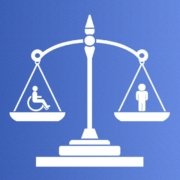The Social Security Administration has established guidelines for which conditions qualify a claimant for Social Security disability benefits based on mental impairments. These guidelines, found in the “blue book” of impairments, list several categories of mental disorders. These disorders include anxiety, bipolar disorder, depression, schizophrenia, substance abuse disorders, and other conditions.
In order to qualify for Social Security disability benefits based on mental illness, the individual must provide medical documentation that meets specific criteria. In addition to the specific criteria for a particular disorder, there must also be evidence that the condition results in one of the following:
- an extreme limitation of one, or a marked limitation of two, of the following areas of mental functioning
- Ability to understand, remember, or apply information
- Ability to interact with others
- Ability to concentrate, persist, or maintain pace
- Ability to adapt or manage oneself
or
- The condition is “serious and persistent”. There is medically documented history of the existence of the disorder over at least two years and there is evidence of both:
- Medical treatment, mental health therapy, psychosocial support(s), or a highly structured setting(s) that is ongoing and that diminishes the symptoms and signs of your mental disorder; and
- You have minimal capacity to adapt to changes in your environment or to demands that are not already part of your daily life.
Below is a brief explanation of the medical documentation required for the more common types of mental disorders:
Anxiety Disorders
Medical documentation of three or more of the following;
- Restlessness;
- Easily fatigued;
- Difficulty concentrating;
- Irritability;
- Muscle tension; or
- Sleep disturbance.
Depression
Medical documentation of five or more of the following:
- Depressed mood;
- Diminished interest in almost all activities;
- Appetite disturbance with change in weight;
- Sleep disturbance;
- Observable psychomotor agitation or retardation;
- Decreased energy;
- Feelings of guilt or worthlessness;
- Difficulty concentrating or thinking; or
- Thoughts of death or suicide.
Schizophrenia
- Medical documentation of one or more of the following:
- Delusions or hallucinations;
- Disorganized thinking (speech); or
- Grossly disorganized behavior or catatonia.
Regardless of your mental disorder, you must show that you are receiving and complying with treatment, preferably treatment by a psychologist or psychiatrist. It is important that you continue to undergo appropriate treatment during the pendency of your claim for Social Security disability benefits.
These requirements may seem complex and overwhelming. Let us evaluate your claim and help guide you through the process.
Call Lewis, Lewis & Falkner today at 205-553-5353 to speak to one of our experienced social security disability attorneys. We are ready to help you get your life back on track.
Want to learn more about Social Security Disability? Check out our FAQ’s Section.









